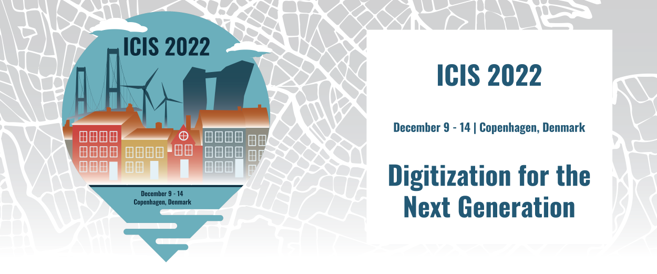Loading...
Paper Number
1776
Paper Type
Short
Description
Inherent properties of digital technologies offer promising possibilities such as rapid scalability and exponential growth. However, we observe that firms pursuing digital transformation (DT) initiatives face difficulties in realizing these benefits, as they face competing organizational demands (tensions) in the DT context. By considering digital technologies’ unique properties and adopting a paradox theory lens, we conducted a qualitative study with 28 interviewees across three companies from which we derive six drivers of tensions and three novel paradoxical tensions within the DT context. We show how these drivers and tensions lead to firms pursuing short-term successes at the cost of strategic benefits that DT offers (what we call “local” instead of “global” optima). We provide scholars and practitioners with a fundamental understanding of how digital technologies define challenges in the DT process so that firms can proactively structure DT initiatives to reach global optima.
Recommended Citation
Viljoen, Altus; Hein, Andreas; Przybilla, Leonard; Soto Setzke, David; and Krcmar, Helmut, "Striving for Global Optima in Digital Transformation: A Paradox Theory Approach" (2022). ICIS 2022 Proceedings. 11.
https://aisel.aisnet.org/icis2022/entren/entren/11
Striving for Global Optima in Digital Transformation: A Paradox Theory Approach
Inherent properties of digital technologies offer promising possibilities such as rapid scalability and exponential growth. However, we observe that firms pursuing digital transformation (DT) initiatives face difficulties in realizing these benefits, as they face competing organizational demands (tensions) in the DT context. By considering digital technologies’ unique properties and adopting a paradox theory lens, we conducted a qualitative study with 28 interviewees across three companies from which we derive six drivers of tensions and three novel paradoxical tensions within the DT context. We show how these drivers and tensions lead to firms pursuing short-term successes at the cost of strategic benefits that DT offers (what we call “local” instead of “global” optima). We provide scholars and practitioners with a fundamental understanding of how digital technologies define challenges in the DT process so that firms can proactively structure DT initiatives to reach global optima.
When commenting on articles, please be friendly, welcoming, respectful and abide by the AIS eLibrary Discussion Thread Code of Conduct posted here.



Comments
14-DigitalInnovation